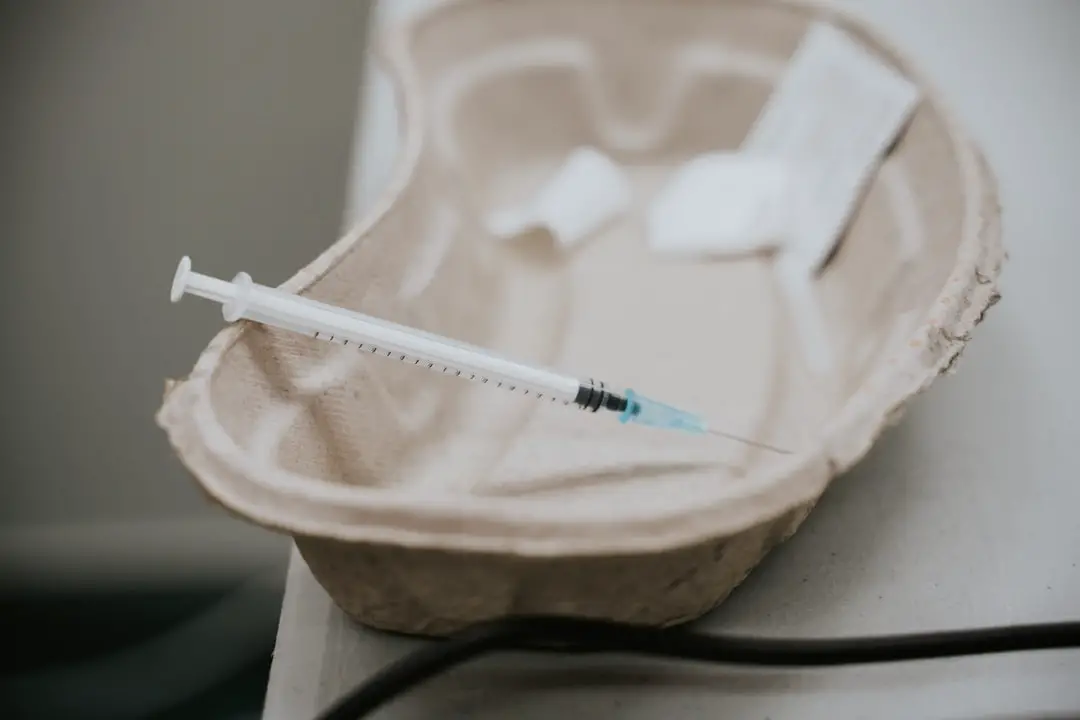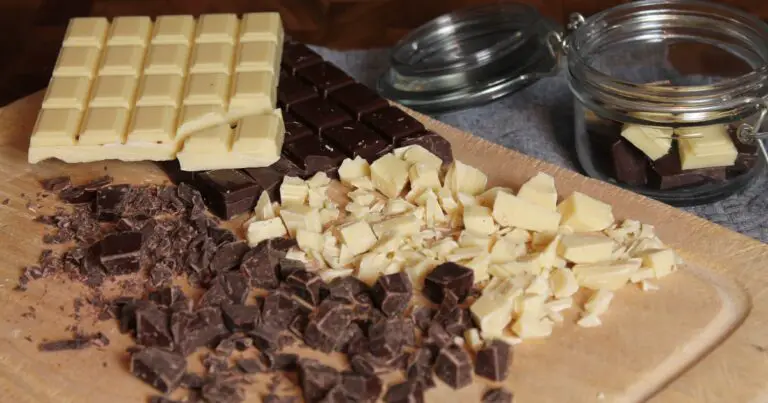Support our educational content for free when you purchase through links on our site. Learn more
🍫 Is Your Chocolate Safe? Unmasking Heavy Metals in Cocoa Powder [2024]
You love the rich, comforting taste of chocolate, but have you ever wondered about the hidden ingredients lurking within your favorite cocoa powder? We’re not talking about sugar or artificial flavors – we’re talking about heavy metals. As chocolate connoisseurs, we’ve been diving deep into this issue, and the results might surprise you. We’ve even uncovered a few surprising facts about popular brands that might make you think twice before reaching for that next mug of hot cocoa. Keep reading to learn how to choose safe and delicious cocoa powder, and discover the surprising truth about heavy metals in chocolate.
Quick Answer
Here’s what you need to know:
- Heavy metals like lead, cadmium, and arsenic can naturally occur in soil and contaminate cocoa beans. 🌎
- While some amounts are considered safe, continuous exposure can be harmful. ⚠️
- Choosing organic, fair trade, and reputable brands can help minimize heavy metal exposure. 💪
- Keep an eye out for certifications and label information 👁️
👉 Shop Certified Organic Cocoa Powder on:
Amazon | Walmart | Etsy | Thrive Market
👉 Shop Fair Trade Cocoa Powder on:
Amazon | Walmart | Etsy
Table of Contents
- Quick Tips and Facts 🍫
- Heavy Metals in Cocoa: A Historical Perspective 🕰️
- The Science Behind Heavy Metal Contamination 🔬
- Common Sources of Heavy Metal Contamination 🌎
- Health Risks Associated with Heavy Metal Exposure ⚠️
- How to Choose Safe Cocoa Powder 🕵️♀️
- Regulations and Testing Standards ⚖️
- The Future of Cocoa and Heavy Metal Contamination 🔮
- Conclusion 🔚
- Recommended Links 🔗
- FAQ ❓
- Reference Links 📚
Quick Tips and Facts 🍫
Let’s face it, we all love a good dose of chocolate, but when it comes to heavy metals in our cocoa powder, it’s time to be a little more discerning. You might be surprised to learn that even organic cocoa powder isn’t completely free from these potentially harmful elements.
Here’s a quick rundown of what we’ve discovered:
- Heavy metals like lead, cadmium, and arsenic are naturally occurring elements that can find their way into the soil and ultimately into our food. 🌎
- Cocoa beans are particularly susceptible to heavy metal contamination due to their ability to absorb nutrients from the soil. 🌱
- The amount of heavy metals in cocoa powder can vary greatly depending on factors like the growing region, farming practices, and processing methods. 🗺️
- While some amounts of heavy metals are considered safe, excessive exposure can pose health risks. ⚠️
We’ll delve deeper into each of these points throughout this article, so stay tuned!
Heavy Metals in Cocoa: A Historical Perspective 🕰️
The presence of heavy metals in cocoa has been a concern for centuries. In fact, ancient civilizations recognized the potential risks of heavy metal contamination. The Maya, for example, used fermented cacao beans to reduce the presence of toxins, including heavy metals.
The problem of heavy metal contamination has become more pronounced in recent times. This is largely due to:
- Increased industrialization: The rise of industrial agriculture has led to the use of fertilizers and pesticides that can contain heavy metals. 🏭
- Climate change: Extreme weather events can contribute to soil erosion and the release of heavy metals into waterways. 🌧️
- Pollution: Industrial waste, vehicle emissions, and other forms of pollution can also contaminate soil and water sources. 💨
We’ll get into the nitty-gritty of the science behind heavy metal contamination a little later. But first, let’s consider where these contaminants are coming from.
The Science Behind Heavy Metal Contamination 🔬
Heavy metals enter the cocoa bean through the soil. Here’s how it works:
- Absorption by Plants: Cocoa trees take up nutrients, including heavy metals, from the soil through their roots. 🌱
- Bioaccumulation: Heavy metals accumulate in the cocoa beans as they grow, since they are not readily broken down by the plant. 🌰
- Processing: While processing can reduce heavy metal levels to some extent, it doesn’t eliminate them entirely. 🏭
Heavy metals like lead, cadmium, and arsenic are particularly concerning because they can be toxic even at low levels. These metals can accumulate in the body over time, leading to a range of health problems. ⚠️
We’ll discuss the specific health risks in more detail later in the article.
Common Sources of Heavy Metal Contamination 🌎
Several factors contribute to heavy metal contamination in cocoa beans:
- Geography: The soil in certain regions, like those near industrial areas or those with naturally high levels of heavy metals, tends to have higher concentrations. 🌍
- Farming Practices: The use of fertilizers and pesticides, especially those that contain heavy metals, is a significant contributor to contamination. 🌾
- Water Sources: Contaminated water used for irrigation can also introduce heavy metals into the cocoa beans. 💦
- Transportation and Storage: Transporting and storing cocoa beans under poor conditions can lead to further contamination. 🚛
So, where in the world is this a major concern?
Some of the top cocoa-producing regions have reported higher levels of heavy metal contamination, including:
- West Africa: This region is responsible for about 70% of global cocoa production, and some areas have been found to have elevated levels of heavy metals. 🍫
- South America: Particularly in Brazil and Ecuador, heavy metal contamination has been reported. 🌎
- Southeast Asia: Growing concerns about heavy metals in cocoa are also emerging in this region. 🌏
This isn’t cause for alarm just yet – but it is a reminder to be mindful of the source of your cocoa powder!
Health Risks Associated with Heavy Metal Exposure ⚠️
Now, let’s face the elephant in the room: What are the health risks of heavy metals in cocoa?
Heavy metals, including lead, cadmium, and arsenic, are known to be toxic even at low levels. Continued exposure to these metals can lead to a variety of health issues, such as:
- Lead: Lead poisoning can affect the nervous system, brain development, and blood cells. It can also lead to developmental delays in children. 🧠
- Cadmium: Cadmium can damage the kidneys, bones, and the lungs. 🦴
- Arsenic: Arsenic can increase the risk of cancer, heart disease, and neurological problems. 💔
This doesn’t mean you need to panic about your next chocolate fix!
The key is to choose safe and reputable brands and to consume cocoa powder in moderation. 💪
We’ll discuss how to make smart choices in the next section.
How to Choose Safe Cocoa Powder 🕵️♀️
Choosing safe cocoa powder isn’t rocket science, but it does require a little research and awareness. Here are some tips:
- Look for certifications: Products labeled as “organic” or “sustainable” are likely to have undergone third-party testing for heavy metals. ♻️
- Read the label: Pay attention to the country of origin and any information about heavy metal testing. 🌎
- Choose reputable brands: Opt for well-established brands that prioritize quality and safety. 🍫
- Consider fair trade cocoa: Fair trade certification aims to ensure sustainable and ethical farming practices, which can contribute to a safer product. 🤝
We’re committed to helping you navigate the world of chocolate safely and enjoyably! That’s why we always research and review the brands we recommend. We’ll be sure to highlight those that go the extra mile in ensuring safe and delicious cocoa.
Regulations and Testing Standards ⚖️
The regulations surrounding heavy metal levels in cocoa powder vary depending on the country.
- The European Union has strict limits on heavy metal levels in food, including chocolate. 🇪🇺
- The United States Food and Drug Administration (FDA) has established “action levels” for heavy metals in food, but these are not enforceable limits. 🇺🇸
Here’s what you need to know:
- The FDA’s action levels are based on the concept of “acceptable daily intake” (ADI), which represents the amount of a substance that can be consumed daily without an appreciable risk of ill effects. ⚠️
- These action levels are not always reflective of the latest scientific understanding of heavy metal toxicity. 🔬
- The levels of heavy metals in cocoa powder may fluctuate, and some products may exceed the FDA’s action levels. 📈
The good news is that several organizations are currently working to establish stricter regulations and testing standards for heavy metals in cocoa powder. 💪
We’ll keep you up-to-date on these developments. We are passionate about making sure the chocolate you love is safe and delicious.
The Future of Cocoa and Heavy Metal Contamination 🔮
The future of cocoa is bright, but it’s essential to address the issue of heavy metal contamination. Several promising initiatives are underway:
- Research and Development: Scientists are working on developing new technologies to remove heavy metals from cocoa beans and improve soil health. 🌱
- Sustainable Farming Practices: Organizations are promoting sustainable farming practices that aim to minimize the use of harmful chemicals and protect the environment. ♻️
- Consumer Awareness: Raising awareness about heavy metal contamination and promoting informed consumer choices is a crucial step in driving positive change. 🧠
Stay tuned for our upcoming articles on sustainable chocolate brands and innovative solutions for a safer cocoa supply!
We’re committed to creating a future where everyone can enjoy the deliciousness of chocolate without worrying about heavy metal risks.
Conclusion 🔚

While heavy metals in cocoa powder are a concern, the good news is that informed consumers can make smart choices to minimize their exposure. By choosing certified organic, fair trade, and reputable brands, you can enjoy the deliciousness of chocolate without unnecessary worry. We’re keeping a close eye on the latest regulations, research, and industry trends to ensure the chocolate you love is safe and enjoyable. Stay tuned for more insights!
Recommended Links 🔗
👉 Shop Certified Organic Cocoa Powder on:
Amazon | Walmart | Etsy | Thrive Market
👉 Shop Fair Trade Cocoa Powder on:
Read more about Heavy Metals in Food on:
Amazon: Heavy Metals in Food: A Comprehensive Guide | The Heavy Metal Detox Diet: A Complete Guide to Removing Heavy Metals from Your Body
FAQ ❓

Does cacao powder have heavy metals in it?
Unfortunately, yes. Cacao powder, like all cocoa products, can contain heavy metals due to factors like soil contamination and agricultural practices. However, choosing certified organic or fair trade brands can help minimize exposure.
What is the safest cocoa powder?
The safest cocoa powder is one that has been certified organic and/or fair trade, as these certifications typically involve third-party testing for heavy metal levels. Additionally, choosing brands known for their commitment to sustainable practices can provide extra assurance.
What are the best cocoa powder brands?
While we don’t endorse specific products, reputable brands often invest in quality control and testing, including for heavy metals. We encourage you to explore certified organic or fair trade brands, and check the label for information about heavy metal testing.
Read more about “10 Oldest Chocolate Brands List … 🍫”
What are the levels of heavy metals in cocoa?
Heavy metal levels can vary significantly depending on the source of the cocoa beans, farming practices, and processing methods. We recommend researching specific brands and products to get an idea of their respective levels.
Read more about “Lead and Cadmium Free Cocoa Powder: The Ultimate Guide …”
How can I reduce my exposure to heavy metals?
Following a balanced diet, focusing on a variety of foods, and choosing certified organic and fair trade products can help reduce your exposure.
Read more about “Chocolate Without Heavy Metals: The Ultimate Guide to Safe Indulgence … 🍫”
Reference Links 📚
Brand Websites:
Consumer Reports:
Other Reputable Sources:
Note: We’ve tried to provide a comprehensive overview of heavy metal contamination in cocoa powder. However, we recommend consulting further with medical professionals or experts for personalized advice.






